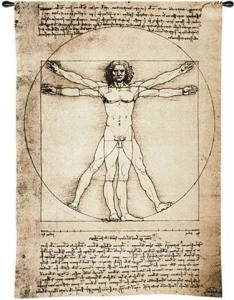Someone made a Facebook friend request this morning. We had two “friends” in common, which considering I have almost five thousand Facebook friends (don’t ask how, it just sort of happened), isn’t all that significant. As I am pushing up to my limit I look to see what if anything we actually might have in common.
And near the top of his Facebook feed was a meme of something called the “Ten Non-Commandments.” What struck me was how good they were. I wondered where they came from, so I googled that phrase, “Ten Non-Commandments,” to find out.
It appears that John Figdor at the time the Humanist chaplain at Stanford and Lex Bayer, a businessman, two self-professed atheists had been wrestling with the social consequences that might accompany their non-belief in a supreme deity. They quite correctly pointed out that the atheist community tends to be stuck in the single question of whether their is a God.
But, really, there’s a lot more to worry about. So, their question was, assuming there is no god, then what? How should one live? What gives meaning and purpose in a life without a deity? First this led to their own list and with it a book published in 2014 called Atheist Mind, Humanist Heart.
Then they took the project one step further, setting up a contest. According to Wikipedia “(T)he authors organized the Rethink Prize: a crowdsourcing competition to create a secular alternative to the Ten Commandments. The contest drew more than 2,800 submissions from 18 countries and 27 U.S. states. Winners were selected by a panel of judges.” It seems that Silicon Valley based entrepreneur Mr Bayer, had deep pockets, offering ten thousand dollars for each winning “non-commandment.”
Looking at their pictures and names of the thirteen judges, eleven appear to be of European descent, two of near Eastern descent, and only three of them women. So, a problem there, no doubt. Although it was a treat to see MythBusters co-star Adam Savage on the panel.
On the one hand I’m delighted by the idea of crowdsourcing our moral insights. After all if they don’t actually rise within the human heart, what good are they. On the other hand, a pretty narrow poll and a flawed panel if you want to correct for probable cultural biases.
That said, I do love the list.
If human beings would just embrace these principals in large numbers, the world absolutely would be a better place.
That said, here’s the list:
I have a few thoughts about the list. First, and perhaps a bit of a quibble, number five seems the premise upon which the list could be made. And, either it is number one, or need not be said at all.
And, second, and vastly more important is that numbers, six, seven, eight, and ten beg a clear statement about interdependence. Which, to my mind and heart are the true foundation upon which this list and any such list must be based.
That said, I really liked the list and the project. And, if you find it interesting, for more on the Atheist Mind, Humanist Heart project, go here
Oh. And, yes, thanks for asking. I accepted the Friend request.













